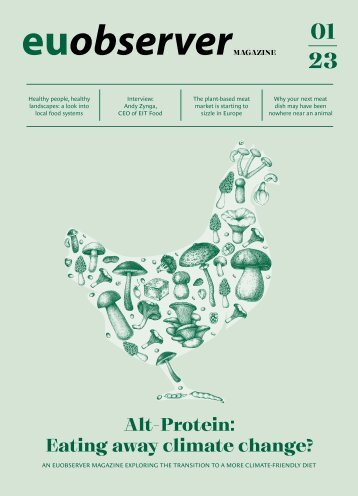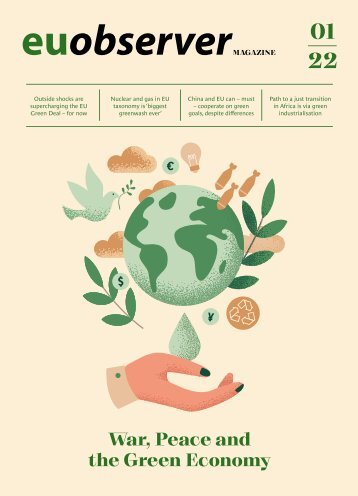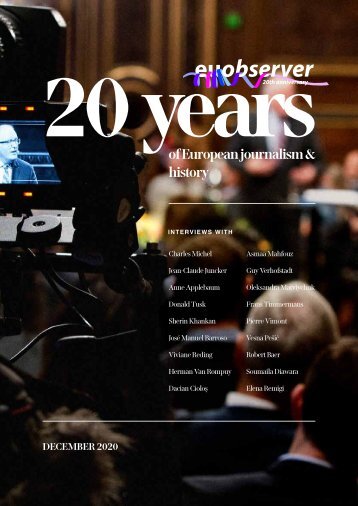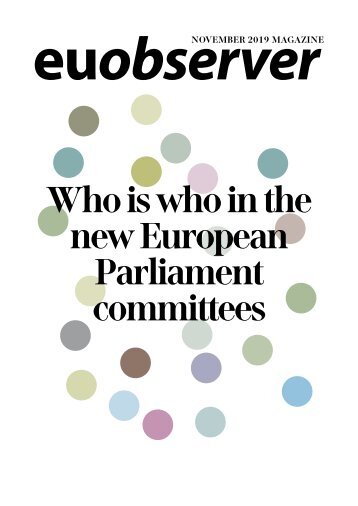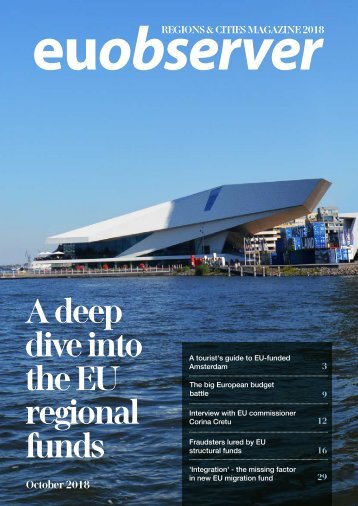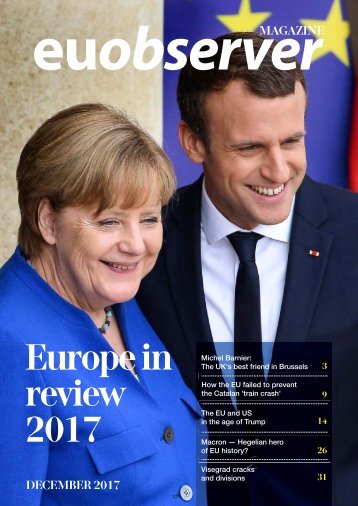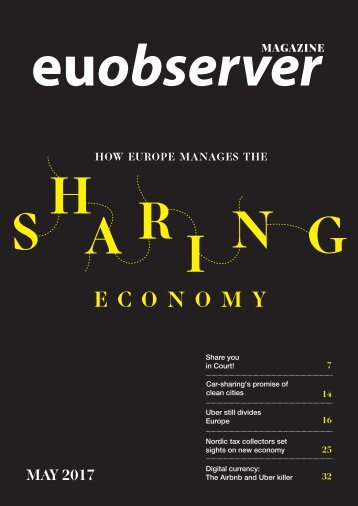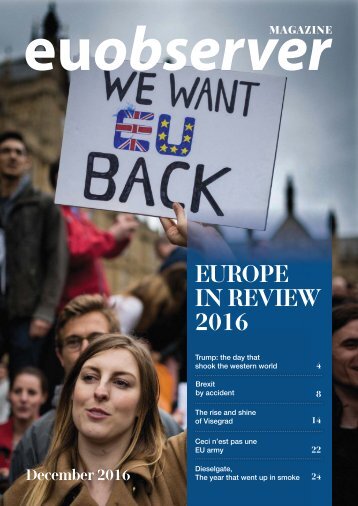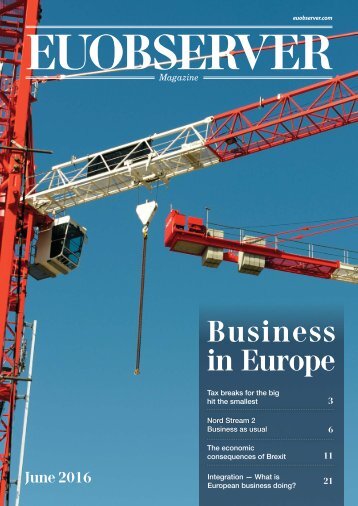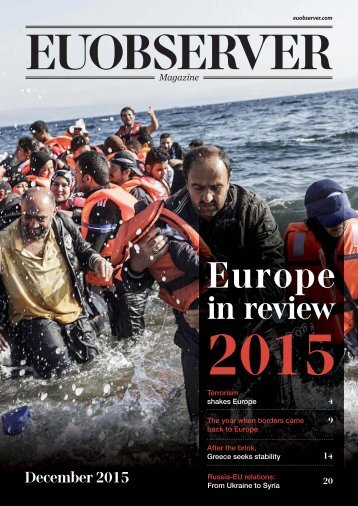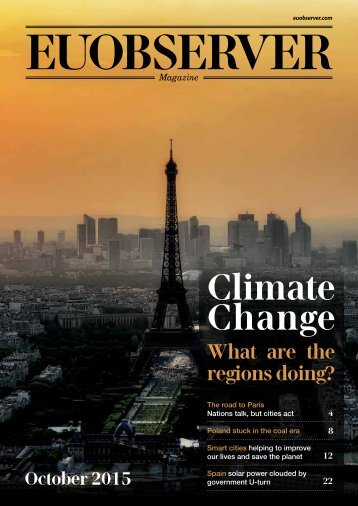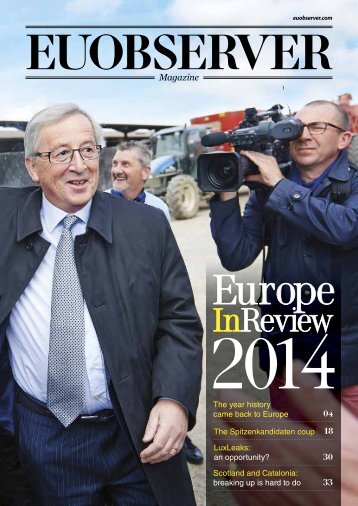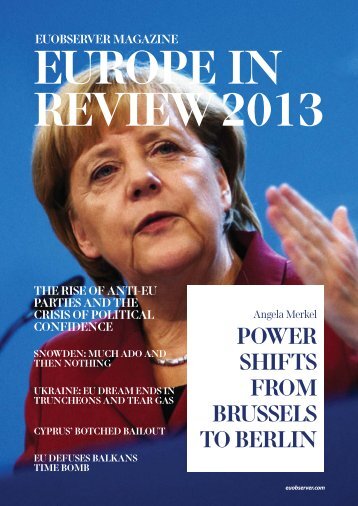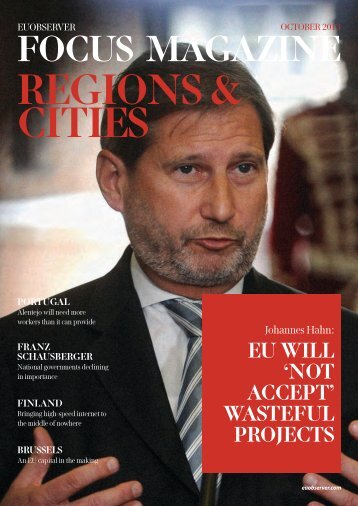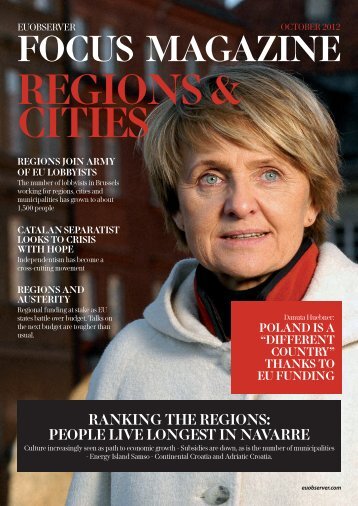Europe in Review 2016
- Text
- Parliament
- Poland
- Hungary
- Visegrad
- Yearbook
- Europe
- Tax
- Luxleaks
- Union
- Politics
- Brexit
Trade: Is
Trade: Is Europe still open for business? EU trade policy has become a target for environmentalists, transparency advocates and populists alike, casting a doubt whether Europe can still close trade deals. By Eszter Zalan Before 2016, very few outside Belgium Socialists in the French-speaking Wallonia region, launched himself onto the world stage when he refused to support the EU-Canada trade deal (Ceta). Wallonia's opposition lay in systems that allow multinational companies to take governments to court and the protections of human and consumer rights. The idea behind a common trade policy was member states banding together carried more weight in negotiations with potential trade partners and could carve out better terms. 2016 saw that idea take a near miss. The trade deal with Canada, negotiated for seven years, almost collapsed at the last minute and question. The region's leader was hailed as a hero by effect symbolised the trouble the bloc's trade policy is in. The Transatlantic Trade and Investment Partnership (TTIP) - currently under negotiations - continues to receive heavy criticism by transparency and environmental NGOs. 2016 has become the year when many of the so far unchallenged pillars of the European Union were called into question. Trade, a common European policy pillar for over 40 years, was mainly an area for technocrats and in particular, Chinese dumping which has caused have tried to agree on reinforced trade protection tools for Europe, but have stalled in the council for three years. The idea behind a common trade policy was member states banding together carried more weight in negotiations with potential trade partners and could carve out better terms. Photo: Kees Torn
The European Commission has long argued that in the case of Chinese steel dumping, the so-called lesser duty rule has limited EU tariffs to 21 percent, while the US, which has no such rule, could impose tariffs up to 266 percent. While the EU has started focusing on reinforcing trade tools and discussing reforming trade policy to make it more transparent and effective, the other side of the Atlantic has elected Donald Trump, who opposes free trade deals, for US president. consumer standards are under threat and that trade deals, rather than creating jobs and generating multinational companies. Populist groups, on both the left and the right of the political gain. “Until now trade policy was perceived as a technical societies, and a change of approach is needed,” an EU diplomat summed up in the autumn. The struggle to sign on time the EU-Canada accord, highlights how trade has become politically sensitive and that the EU is less capable of delivering results. "It seems obvious that the EU is not capable of having an international agreement even with a country that has values that are so European, with a country that is as nice and as patient as Canada," Canadian international trade minister Chrystia Freedland said at one point in the last-minute negotiations. TTIP, which was supposed to set the standards for world trade. administration to decide the fate of the talks, going on since 2013. Bernd Lange, chairman of the European Parliament's trade committee warned that open trade policy is not something Europeans can take for granted anymore. "There is a feeling that something uncontrollable is happening, people will be afraid of it and start opposing it. We have to better control globalisation," he said, adding that, the democratic structures are Yet with TTIP slipping away, and a lagging agreement trade, while others would move toward a more protectionist path. populism would only mean more protectionism. Paul Magnette: His opposition to Ceta launched him from obscurity to the world political stage. Photo: Campact EUROPE IN REVIEW DECEMBER 2016— 23
- Page 1 and 2: MAGAZINE EUROPE IN REVIEW 2016 Trum
- Page 3 and 4: Challenging current and future lead
- Page 5 and 6: “American Psycho”, said Liberat
- Page 8 and 9: Photo: Reuters BY ACCIDENT The Brit
- Page 10 and 11: Primary school teacher Rossano Erco
- Page 12 and 13: An EU hotspot in Samos. The EU comm
- Page 14 and 15: THE RISE AND SHINE OF VISEGRAD The
- Page 16 and 17: proposal on “posted workers”, w
- Page 18 and 19: the europhobes that a former commis
- Page 20 and 21: EU LEGITIMACY IN QUESTION From lost
- Page 24 and 25: Photo: European Parliament Dieselga
- Page 26 and 27: Photo: David Martinez Bienkow
- Page 28 and 29: Eurocorps soldiers in front of the
- Page 30 and 31: 2016 in pictures Poland the publi
- Page 32: 32 — EUROPE IN REVIEW DECEMBER 20
Inappropriate
Loading...
Mail this publication
Loading...
Embed
Loading...

